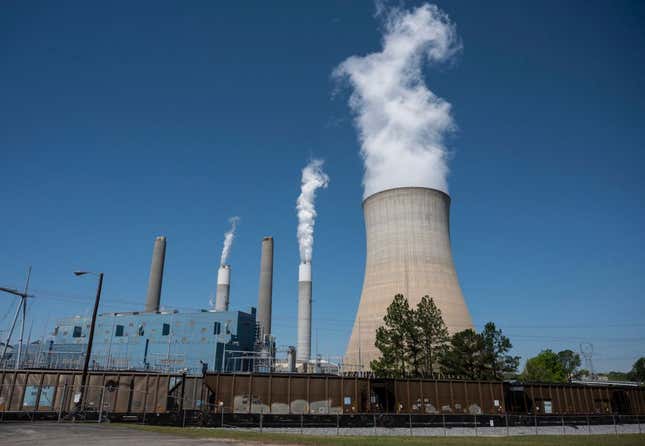
As the Supreme Court nears the end of its current term of rulings, the Environmental Protection Agency (EPA) now has limited tools in the ways it can fight ongoing climate change. The high court placed limits on how the EPA can regulate greenhouse gas emissions from power plants which will be a significant setback for the Biden administration’s climate change goals. The White House set goals to zero out carbon emissions from power plants by 2035 and cut in half the country’s emissions by the end of the decade.
The Hill reports that the 6-3 decision in the West Virginia v. EPA was among ideological lines (no surprise there). Today’s majority ruling states Congress’s usage of the Clean Air Act did not grant the EPA the authority to adopt on its own a regulatory scheme to cap carbon dioxide emissions from power plants to combat global warming. Chief Justice John Roberts wrote the majority opinion, which can be considered a massive win for coal companies.
Roberts wrote, “There is little reason to think Congress assigned such decisions” about the regulations in question to the EPA, despite the agency’s belief that “Congress implicitly tasked it, and it alone, with balancing the many vital considerations of national policy implicated in deciding how Americans will get their energy.”
“Capping carbon dioxide emissions at a level that will force a nationwide transition away from the use of coal to generate electricity may be a sensible ‘solution to the crisis of the day,’ ” Roberts wrote, “But it is not plausible that Congress gave EPA the authority to adopt on its own such a regulatory scheme.”
It’s also possible that today’s ruling could invite further challenges, which will hurt the EPA’s regulatory power even more. Justice Elena Kagan wrote a dissent for the three liberal justices and spoke about that fear.
“The subject matter of the regulation here makes the Court’s intervention all the more troubling,” Kagan wrote. “Whatever else this Court may know about, it does not have a clue about how to address climate change. And let’s say the obvious: The stakes here are high. Yet the Court today prevents congressionally authorized agency action to curb power plants’ carbon dioxide emissions.
“The Court appoints itself—instead of Congress or the expert agency—the decision-maker on climate policy. I cannot think of many things more frightening.”

